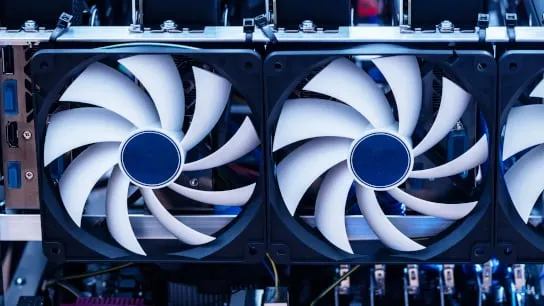In brief:
- Bitcoin mining firms have been affected by the coronavirus lockdown.
- But firms argue that it could have been much worse.
- The falling Bitcoin price has been a much bigger issue.
The Bitcoin mining industry has been mostly unaffected by the coronavirus pandemic—beyond the falling price of Bitcoin—according to the biggest miners.
Four Bitcoin mining firms told Decrypt that, while supply chains for newer machines have been disrupted, they have faced few major issues. At least one firm has fully adapted to the pandemic, and all employees are now working remotely. And with conditions in China getting better, things are starting to go back to normal.

"More people are going to work from the office, going to restaurants and going out. Of course everyone takes COVID-19 very seriously, and wears masks, but things are getting back to normal. So I don't expect any issues from China in regards to the supply chain in the near future," Thomas Heller, global business director of mining pool F2Pool, told Decrypt.
Despite the lockdown, some of the miners found new ways to adapt—and even thrive. According to mining firm Argo Blockchain, the entire company has migrated online.
“Our company and staff are all now working remotely, and all of our mining facilities have been able to continue running as normal,” an Argo spokesperson said.
"We have had no issues from our suppliers of mining rigs so far. We see demand at the moment driven more so by the Bitcoin halving in May as opposed to Covid-19,” the spokesperson said, adding, "From our own experience, we are expecting our latest shipment of 1,000 S17+ machines to be delivered and installed on time as arranged with our supplier."
But the shutdown of supply chains around the world has had an impact on some Bitcoin mining companies.
The coronavirus has caused some headaches
Several miners have struggled with supply-chain issues for getting hold of new machines.
"During February, there were some challenges for some mining farms in China, due to restrictions on travel and shipments. In some locations, machines that were broken were unable to be sent to offsite repair centers," explained Heller. "New miner shipments were also delayed for around two weeks in early February, as those factories were on lockdown."
China-based mining manufacturer Whatsminer reported similar disruption, telling Decrypt that lockdowns had struck their supply chain.
"It has slowed up manufacturing due to factory workers not all returning from holiday in February and accessibility to parts like spare PSU has been harder." But Whatsminer had already shipped its m30 series mining rigs, so it wasn’t that badly affected.
Phill Salter, head of Genesis Mining operations, suggested that, while there has been some disruption, it’s nothing more than most mainstream companies have had to deal with.
"Supply chains are paused worldwide and our newer projects are progressing slower than planned because of it. But that's the same for everyone right now." he said.
Demand drops for mining machines
While the supply of mining machines has been largely unaffected, there has been a drop in demand for new mining machines. Mining experts put the blame on the falling price of Bitcoin ahead of the Bitcoin halving in May—which will see mining revenue get cut in half.
"Our understanding of the market is that demand for the most up-to-date and efficient rigs has slowed as many mining operations are choosing a more cautious approach ahead of the halving," the Argo spokesperson said.
Genesis Mining added that this can be seen in the falling Bitcoin hash rate—the total sum of computing power by Bitcoin miners keeping the network running. A drop in difficulty means fewer miners are mining.
“The difficulty has gone down, not because of corona directly, but because of the price decrease, which made many miners unprofitable and they had to turn off,” they added.
So, if anything—it’s the prices that Bitcoin miners are most worried about.

